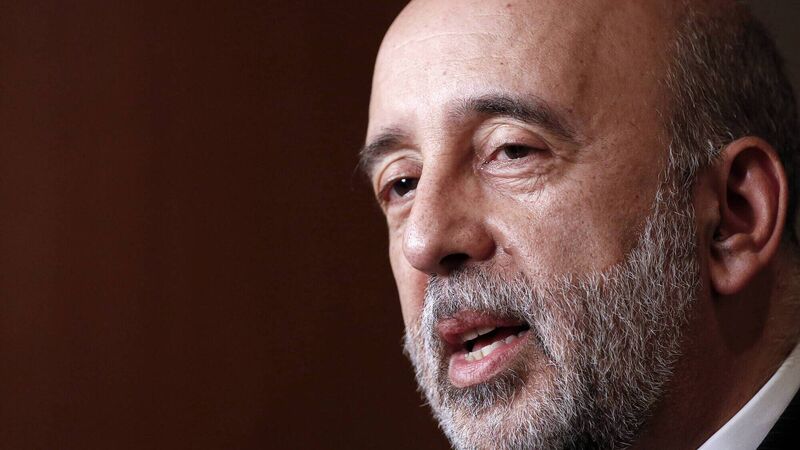Central Bank: Another lockdown would have 'very serious implications' for economy

Central Bank governor Gabriel Makhlouf: 'I think another lockdown across the whole country would have very serious implications for the economy and for the community at large.'
Placing the country back into a widespread lockdown to mitigate the spread of Covid-19 would have “very serious implications” for the economy, the head of the Central Bank has warned.
Gabriel Makhlouf said it seems the virus will not be eliminated in the next few months and we need to learn how to live with it as best we can.
He said “living with it” means economic activity needing to continue as best it can.
“I think another lockdown across the whole country would have very serious implications for the economy and for the community at large,” he said.
“Do I think it [a return to national lockdown] would be inappropriate under any circumstances? Of course not, I’m not a health person. I’ll leave those judgments to them.
"I do think if we were certain we could eliminate the virus and were certain of the timescale, then perhaps that’s what we should do.
"But my observation is that is highly unlikely, so I think it’s better that if we’re going to have to live with this, that the economy does continue to work and that we do give ourselves as much of a framework on which to make decisions."
Mr Makhlouf was speaking after addressing a virtual seminar hosted by economic think-tank the Institute of International and European Affairs.
CSO figures last week confirmed that Ireland entered recession in the second quarter, with the pandemic driving a 6.1% drop in GDP.
Asked whether the Central Bank will guard against payment breaks for companies being regarded as non-performing loans, Mr Makhlouf said it is coming to the time when lenders will not be able to postpone decisions as to whether loans are a worry and may have to judge whether loan restructuring is worthwhile or not.
He said there is bound to be an increase in distressed debt in the current recession, but that Ireland, through the Central Bank and individual lenders, must look to avoid an overhang of bad debt becoming a legacy of the Covid crisis, much like it did with the financial crisis a decade ago.
“The post-Covid-19 world could be different in a number of aspects, with economies likely facing new structural changes while changes already under way may accelerate or reverse,” said the Central Bank governor.
With the European Central Bank leaving interest rates at historic lows last week, at its first council meeting since July, Mr Makhlouf said he expects rates to remain low.
“Fear of infection, weak labour markets, heightened uncertainty, and higher precautionary savings will lead to lower demand for goods and services, which implies that the real natural rate of interest is likely to remain at low levels," he said.
On inflation, Mr Makhlouf said: “As both demand and supply-side factors will continue to impact on inflation, I believe that demand factors will dominate and lead to a fall in prices. Financial markets data corroborate this view."
"The pandemic is having a substantial impact on all of our lives which means it is also having an impact on monetary policy," he said.





